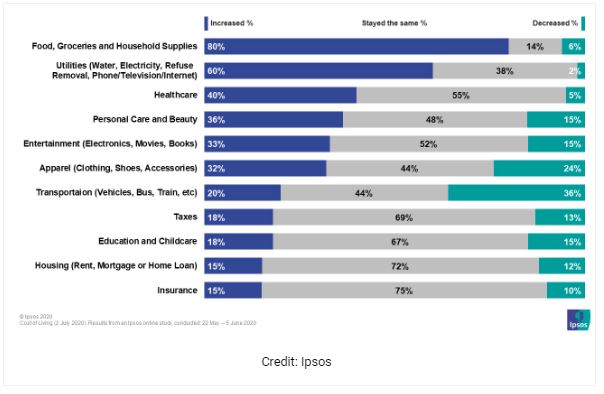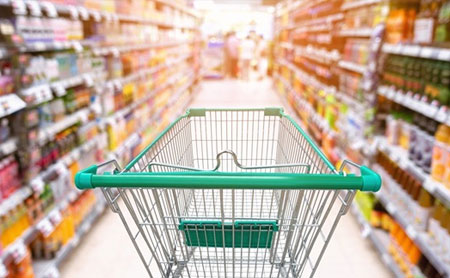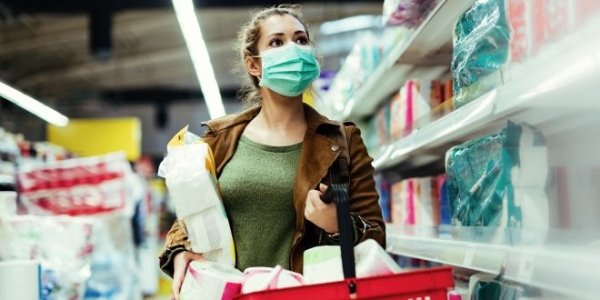Poor consumers have had to resort to desperate measures such as sinking themselves in debt and making use of loan sharks to put food on the table.
An Ipsos survey has revealed that more that 60% of participants are concerned about the increased cost of food, groceries and household supplies since the Covid-19 outbreak began, with 80% of South Africans saying that food prices have increased.
A global online poll of nearly 18,000 people conducted between 22 May and 5 June revealed that 60% said costs had increased, with South Africa and Mexico topping the list of countries experiencing increases.
According to the survey, South African women are more worried about the issue, compared to men, with 84% of women and 77% of men saying the overall cost of necessities had increased over the last few months.
87% of those 50 years and older, 83% of those 35 – 49 years old and 76% of those 18 – 34 years old said costs had increased.
One in every ten (11%) of online South Africans indicated they had to pay for medical treatment because of Covid-19, while 89% did not have this expense, the survey revealed.
60% of the participants said the cost of utilities (water, electricity, refuse removal, phone/TV/ internet) had increased, while only 40% noted an increase in healthcare costs.
Most of the participants did not notice an increase on taxes, education and childcare, housing and insurance costs.
Expenses for South Africans increased for the following items:
Research by the Pietermaritzburg Economic Justice and Dignity Group (PMBEJD) revealed in June that food prices had seen an increase of as much as 30% throughout the lockdown period.
The organisation released several reports tracking the cost of a basket of food items, and how the prices have changed over the past months. The latest report was released in the final week of May and if the trends it observed continue, consumers could be in for a very bad time financially.
Coupled with the expected increase in unemployment, and salary cuts being experienced in numerous sectors as the economy crawls back to a start, this is sure to increase food insecurity.
The research found that while an increase in social grants had helped, it was not enough to buffer the price hikes.
During the first month, they saw an increase in the price of their food basket of 5,8% (by R187,08, from R3221 to R3408) from March to April.
The report for May showed the prices of a basic food items increased by an average of 30%, with a family having paid approximately R3 470,92 for a basket of items that cost R3 221,00 before lockdown. This is an increase of R249,92 (7,8% more).
As a result, poor consumers have had to resort to desperate measures such as sinking themselves in debt and making use of loan sharks to put food on the table.
Article Source: https://citizen.co.za/lifestyle/your-life-home-life/2314556/south-africans-worried-about-food-price-increases-during-covid-19-pandemic-survey/






